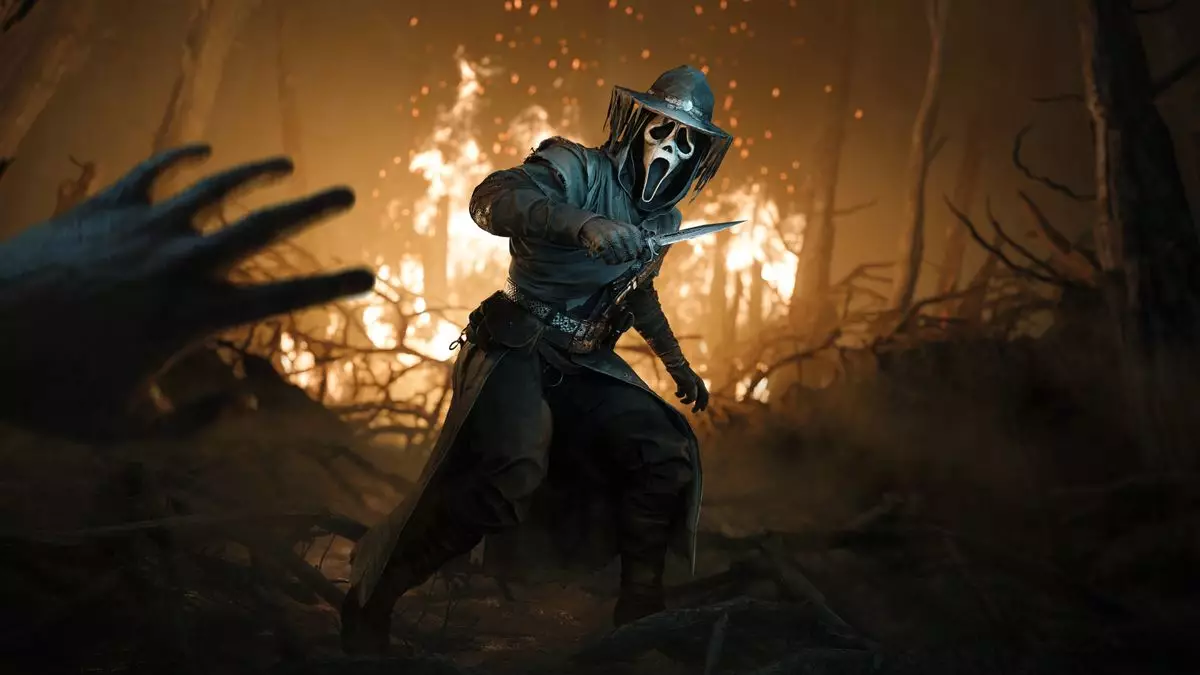In the gaming industry, the intersection of different intellectual properties can provoke varying reactions, from excitement to outrage. One recent example of this phenomenon is the collision of the multiplayer FPS Hunt: Showdown with the iconic horror movie franchise Scream. The introduction of the Ghostface character as part of the Ghostface Rampage DLC has ignited a firestorm of debate among fans about the viability of such crossovers. The developer, Crytek, has found itself in the hot seat, navigating both fan expectations and their creative vision.
A Brief Overview of the Unconventional Crossover
Hunt: Showdown, with its atmospheric setting rooted in an alternate-history 1890s Colorado, offers players a gritty and immersive experience centered around hunting supernatural beings. In stark contrast, Scream is a modern horror classic that presents a satirical take on slasher tropes, grounded in a fictional Californian town called Woodsboro. The juxtaposition of the two worlds raises questions about narrative consistency and thematic coherence. Fans of Hunt: Showdown worry that the introduction of a contemporary horror icon into their beloved game may undermine its unique identity.
The Ghostface Rampage DLC was launched as a means of capitalizing on the Halloween season, but it also sparked controversy over its implications for the future of the game. Critics argue that if Crytek is willing to bend the rules of immersion to accommodate a slasher like Ghostface, what other surprises might be in store? Could this signal a new trend of disregarding the established lore? Such concerns underscore a larger debate within gaming culture: to what extent should nostalgia and thematic integrity be preserved in the face of creative experimentation?
In response to the backlash, Crytek opted for a defensive communication strategy through social media. Their lengthy Twitter statement attempted to reassure the gaming community that the introduction of Ghostface was grounded in their broader vision for Hunt: Showdown. Crytek articulated that their intention was not merely to drop recognizable characters into the game for financial gain but to weave new narratives and enhance the existing lore.
However, this explanation has drawn criticism for lacking substance. While the developer expressed a desire to maintain authenticity and continuity, the lack of transparency left many fans unconvinced. The attempt to position Ghostface as an “ageless mythological figure” risks alienating players who cherish the game’s immersive experience. Furthermore, this statement reflects a growing trend among developers to prioritize cross-promotional opportunities over the integrity of their gaming narratives.
The Role of Community Feedback
The community’s response to the Ghostface DLC highlights the importance of player sentiment in the evolution of any game. Hunt: Showdown has cultivated a dedicated player base insisting on authenticity and depth. While some fans, including those with a fondness for horror franchises like Scream, may find merit in the crossover, many players are advocating for blood-pumping gameplay without compromising the game’s original essence.
This contrasting perspective should prompt developers to acknowledge the diversity of their audience’s expectations. The criticism aimed at Crytek serves as a reminder that immersion is paramount in first-person shooters. Players invest not only time but emotional energy in their gaming experiences, which makes their reactions to narrative deviations all the more critical.
This controversy is a microcosm of a larger trend seen across the gaming industry, where franchises are increasingly prioritizing collaborations that might attract a broader audience. However, this practice raises philosophical questions about game narrative integrity. Are we entering an era where IP collaborations will take precedence over original storytelling, or will the industry find a balance that respects both fan loyalty and creative innovation?
As the dust settles on the Ghostface controversy, it becomes evident that the gaming community is at a crossroads. The reception of character crossovers will inevitably shape future development strategies, as companies weigh short-term excitement against long-standing fan expectations. Gamers will continue to voice their opinions, and developers will need to listen if they hope to maintain a loyal player base. For now, fans of Hunt: Showdown will have to navigate the potential impact of such collaborations while staying true to the gritty, atmospheric game they’ve come to know and love.


Leave a Reply